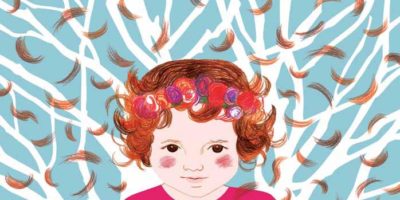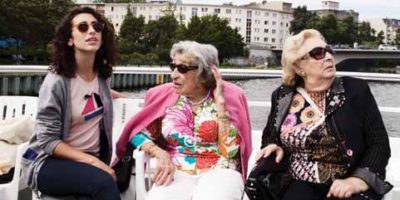Those Jewish Brits
Though a relatively small community, Anglo-Jewry has lately produced a spate of highly successful fiction. These include two recent offerings that address female Jewish protagonists and their struggles with community.
Eve Harris’s The Marrying of Chani Kaufman, longlisted for the Man Booker Prize, is set primarily in a contemporary ultra-Orthodox community in Northwest London. Told from multiple perspectives — the young bride-to-be Chani, her fiance, his mother, her mother, the matchmaker, the rebbetzin who prepares Chani for her nuptials, the rabbi, their son and his secret lover of Nigerian descent — this suspenseful and well-paced tale centers around the fears and tensions surrounding the upcoming wedding. Or perhaps even more pronounced, the upcoming wedding night. Sex — recreational and procreational — is at the forefront of these characters’ minds. The older ones grapple with a miscarriage that catalyzes the end of a marriage, the younger ones are mystified by their sexuality (which they are taught nothing about) and terrorized by the thought of losing their virginity as new marriage looms.
Chani, at the center, is curious and strong-minded, and the novel considers how these traits make her difficult to ‘marry off’. “Unaware of their own mediocrity, young people demanded perfection in a spouse.” Along with gender, the narrative explores intimacy, interactions with the secular world, and the complex family dynamics in families with so many children. It sheds light on the private experience of the very religious — both men and women, from what they think about when riding the bus to attempting to glimpse the other gender’s section at a simcha — including their doubts and dissatisfactions with their closed world. As a reader, I felt like a hungry voyeur, eagerly interested in how the ultra-Orthodox go about their everyday lives and loves, hoping that the secular author wrote from research rather than conjecture.
While the dialogue occasionally seems to be in service of explaining Jewish custom, for the most part I was so drawn into this fictional world that I wanted to know how the characters would fare in their new married and divorced lives.
Also based on a marriage is The Gallery of Vanished Husbands by bestselling author Natasha Solomon. The novel stretches through time, but is set primarily in a conservative — but not religious — tight-knit Jewish community in a London suburb in the 1960s. Juliet Montague (a classic “assimilationist” British Jewish name) is a 30-something mother of two, an art gallery owner and an aguna, a woman whose husband has disappeared or who refuses to grant her a Jewish divorce, so she remains unmarriable. The title of the book comes from a column that ran in the Jewish Daily Forward, which included photographs of missing husbands in an attempt to track them down. In this case, the title also refers to Julia’s opening of her own gallery, as well as to the “gallery” of portraits that hangs in her home, a house that remained suburban and shabby even when she became an avant-garde arbiter of taste. In both these novels, we follow female characters who question and critique their communities and families, but, ultimately, remain Jewish, accepting doubt and ambivalence.
We meet Juliet several years after her Hungarian Holocaust-survivor husband’s exit, just as she’s beginning an adventure in London’s swinging 60s art world. Even more so than Chani Kaufman, Juliet is curious, strong-willed and feisty; she is only slightly uncomfortable in her Jewish world — which sees her as a mild disgrace — and in the aristocratic art world which sees her as a Jew. A confident iconoclast, she is successful and at ease in her new bohemian life, which makes her likable, but one doesn’t get the sense that she misses her husband all that much. Because of this, the stakes in the tale at first seem low, the drama centered mainly on art world social life. The tension, however, progresses as Juliet’s love affair with an older British artist (inspired by English painter Eric Ravilious) becomes more complicated, her children mature and react — often negatively — to her life choices, and she goes to America to search for her long-lost spouse, a journey which adds mystery and urgency. All along, the reader is seduced by evocative description: “The pale city light melted into a half-hearted dawn, a lackluster sun slinking up over the buildings … In Los Angeles daylight gave way to the neon dark of late night drugstores and streetlights and the acid glow of the office buildings.”
For me, more interesting than the plight of the aguna here was the theme of post-Holocaust intimacy in the Jewish world. By exploring Juliet’s husband’s psychology and his previous relationships before the Second World War, the tale subtly explores the way that the war damaged generations of families across continents.
Judy Batalion is a writer in New York. She is currently a columnist for the New York Times “Motherlode” blog.




